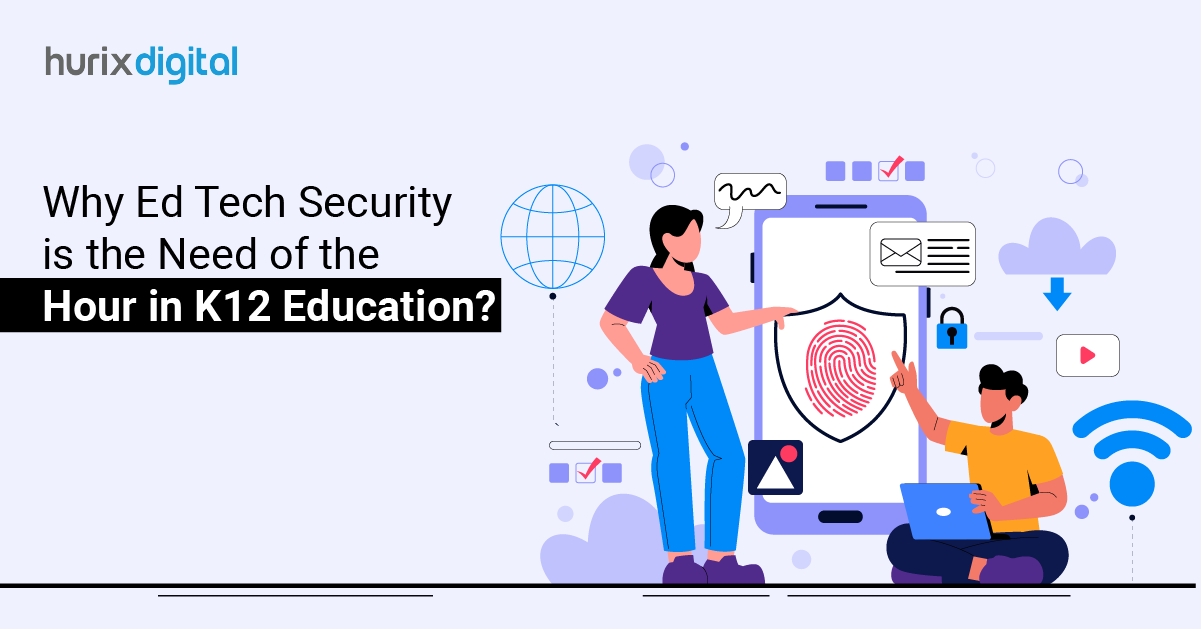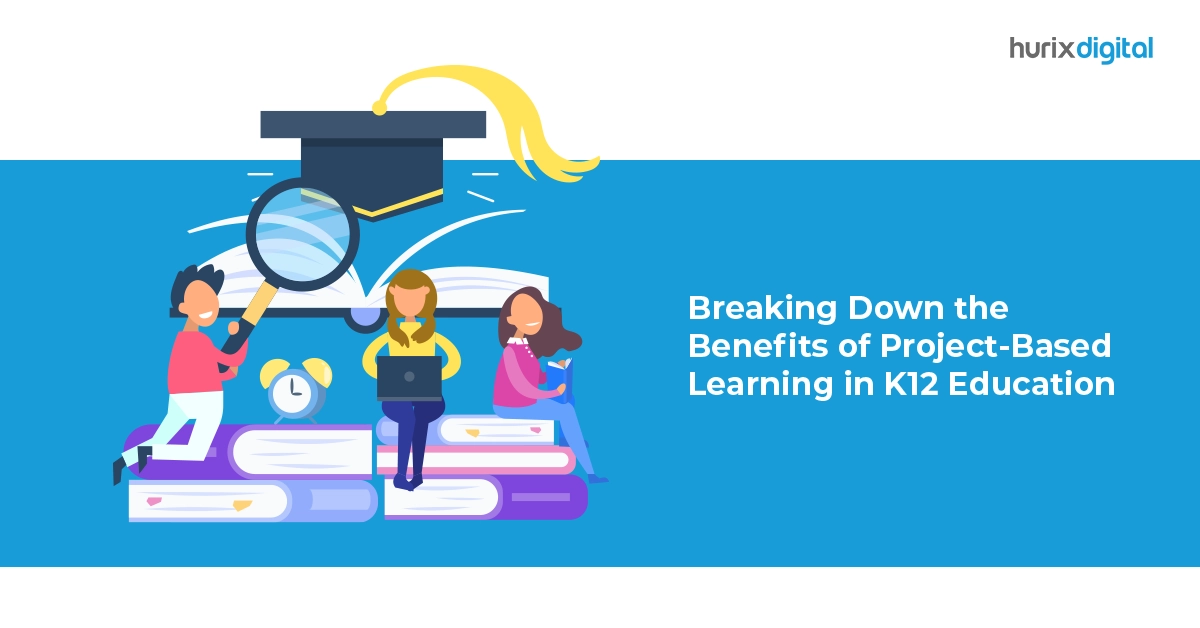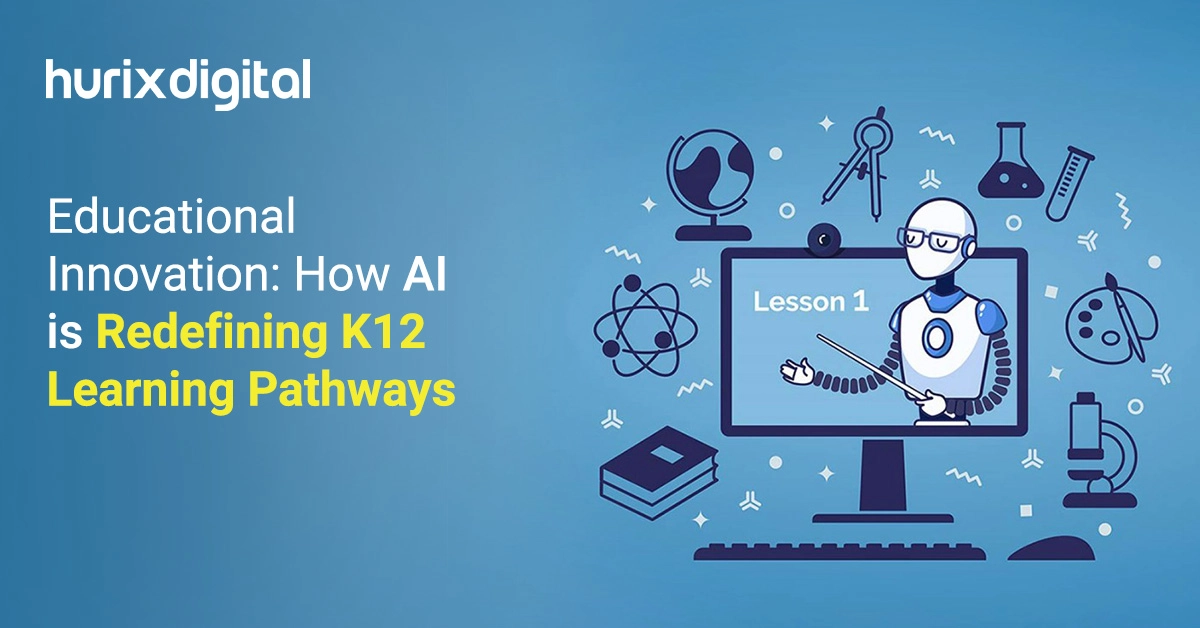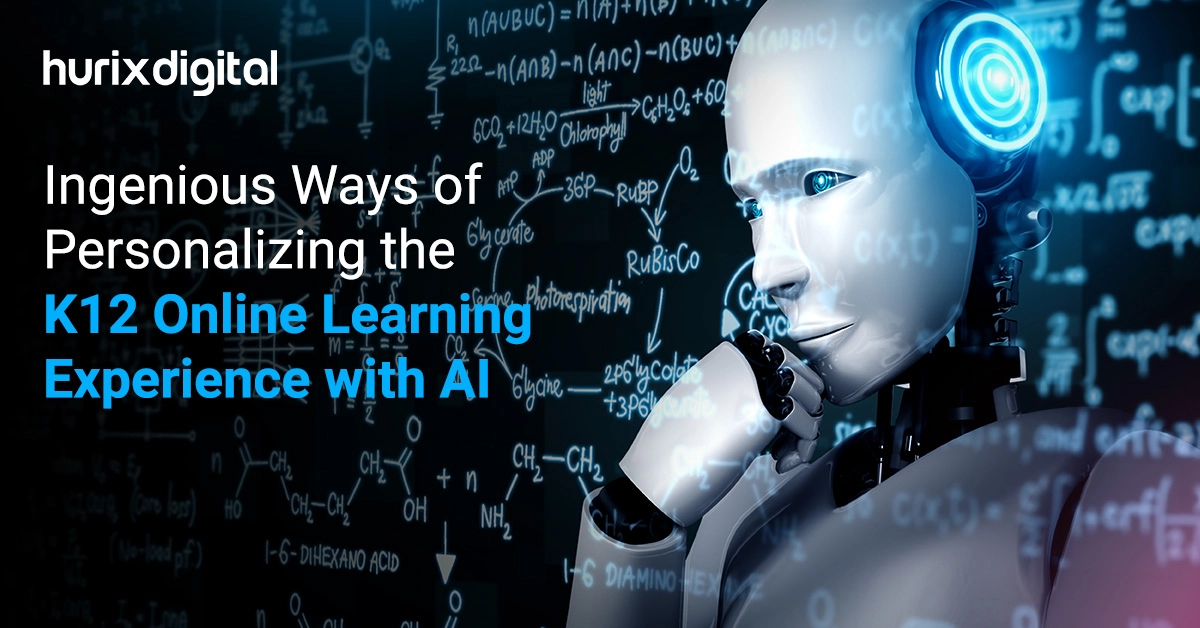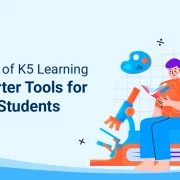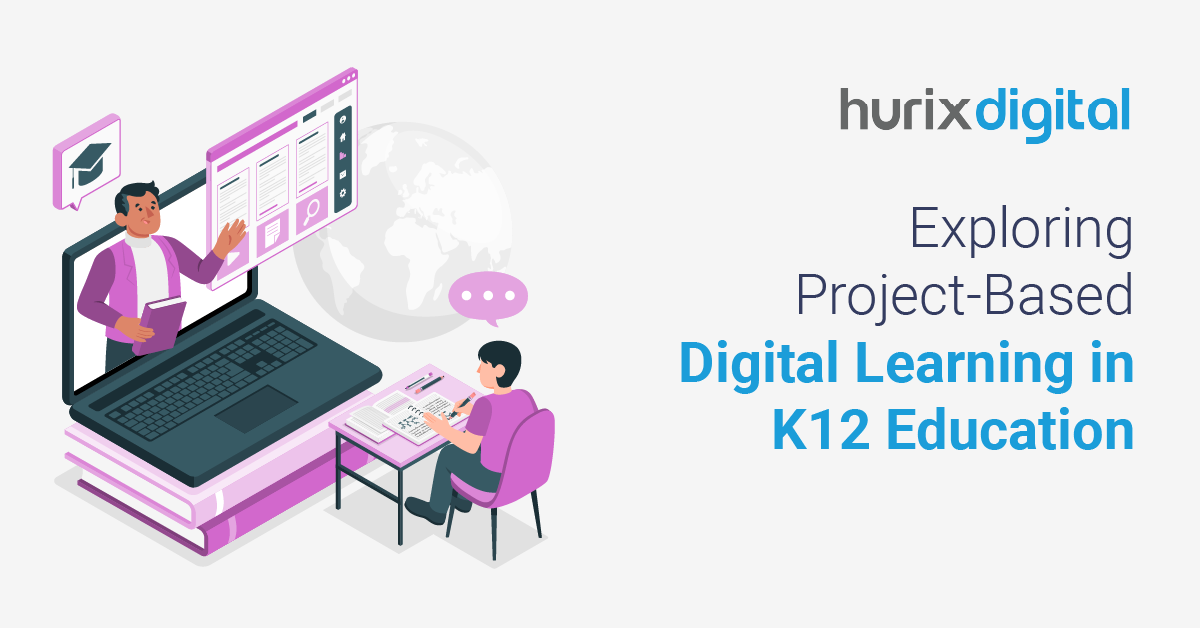
Exploring Project-Based Digital Learning in K12 Education
The educational industry today has comfortably settled into its digital nature. With technology, there have been several innovations in pedagogies as well that incorporate the digital approach towards education today.
Project-based digital learning in K12 is one of these approaches. Project-based learning methodologies aim to help students solve real-world problems in a classroom setting and develop real-world skills by engaging with real-life issues.
In fact, 95% of the teachers report that project-based learning has helped improve students’ teamwork abilities. Let’s explore the various ways in which project-based learning helps K-12 digital education.
Table of Contents:
- What is Project-Based Learning?
- 5 Ways Where Digital Project-Based Learning Can Transform K12 Education
- Benefits of Project-Based Learning
- Implement Modern Pedagogies Using Cutting-Edge Technologies
What is Project-Based Learning?
Project-based learning is an educational approach that focuses on exploring real-world problems in the classroom to help trigger critical thinking and problem-solving in students. It is a student-oriented approach that aims to help learners evolve their 21st-century skills and become dynamic, resilient individuals.
While traditional learning focuses on textbook-based lessons, project-based learning encourages thinking out of the box and provides a more hands-on experience. By way of presenting the students with open-ended questions and real-life challenges (like solving waste disposal problems in a community), students can learn to think in terms of finding practical solutions to real issues.
Also Read: Future Trends in K12 Curriculum Development for 2024
5 Ways Where Digital Project-Based Learning Can Transform K12 Education
There are five key ways in which project-based digital learning in K12 enhances the quality of education for students:
1. Student-Centric Approach
First, this methodology’s student-centric approach allows learners to explore their thought processes. When presented with a scenario with open-ended questions, students can take control of their journey toward exploring a practical, feasible solution.
Students have the liberty to explore various perspectives, access resources, and gather materials to support their solutions. This helps them achieve a well-rounded education and makes the learning process more enjoyable.
2. Classroom Integration
With the rise of digital classroom solutions, it has become easy to integrate project-based digital K12 learning into lessons. Students have access to tools that allow them to apply their theoretical knowledge to practical situations through simulations, role-playing, or scenarios.
Digital classroom solutions also enhance the accessibility of learning resources. School databases or repositories can easily be integrated into classroom modules, where students can use their IDs to access them. This is an excellent way to let students gain knowledge on their terms and needs.
3. Learning Autonomy
Engagement and enthusiasm toward learning help students learn effectively and retain knowledge. Project-based learning, coupled with digital technologies powered by AI, gives students some degree of autonomy over their course.
Using AI, students can apply adaptive learning to help them where they are stuck; they can leverage the course’s self-pacing to understand the problem at their own pace. The power to choose how to absorb information and how to achieve teamwork gives the students important life lessons on responsibility and accountability.
4. Clear Criteria for Assessment
Project-based learning essentially involves clear criteria for students to deliver on in order to pass a course or a module. For example, every assignment carries set grades or scores, weightage for each section, necessary deliverables, expected score, instructions and resources, etc. The students know exactly what they need to do – how they choose to do it is left to their discretion.
This helps establish transparency in the module by letting the students know from the outset what direction the course is required to take.
5. Student-Generated Solutions
While traditional education believes in showing the students the most efficient path, project-based learning focuses on letting the students explore their own path to a solution. This helps generate several practical, feasible solutions to a challenge that are all unique and follow different approaches.
Additionally, students are then asked to compare their solutions with the best alternative to highlight the benefits and shortcomings of each approach. This is a multistage process that helps foster extended inquiry that does not limit itself to rote learning.
Benefits of Project-Based Learning
The unique approach that project-based learning follows for education brings several benefits on the table for students:
1. Enhanced Confidence and Self-Esteem
Project-based learning encourages students to be self-reliant and independent in searching for solutions to problems. They have access to the knowledge base, assistance, and resources, but they are required to seek out a solution on their own. This helps improve their confidence in themselves and raises their self-esteem.
2. Better Comprehension and Retention
When solving a problem, the students are thoroughly engaged in the project searching for solutions and exploring various approaches. High levels of engagement, research, and exploration help them retain what they learn for longer periods. They are also able to recall important milestones from their journey because of the hands-on experience.
3. Career and Future Readiness
One of the main objectives of project-based learning is to teach students to tackle real-life challenges with a practical, clear approach. This is a crucial skill to acquire to be prepared to face the ups and downs of a career and prepare for future growth leaps.
4. Teamwork Skills
Working with classmates to explore a solution helps teach students teamwork and collaboration. Learning patience also comes as a part of this activity because students are required to listen to their teammates with an open mind and a common objective to achieve.
Also Read: Why is CTE a New Option for Student Success in Today’s K12 System?
Implement Modern Pedagogies Using Cutting-Edge Technologies
The success of a modern education pedagogy depends on the effectiveness of its implementation. Project-based digital learning in K12 education, for example, requires accessibility to the knowledge base, teamwork and collaboration tools, and an open communication channel to the mentors for it to be effective.
By partnering with Hurix Digital, your institution can successfully implement a full suite of digital tools that enhance the delivery of project-based learning in the classrooms. Hurix Digital equips you with tailored development of custom courseware to help you implement project-based earning the way you envision it.
You also get access to editorial services to help you elevate the course content for maximum impact. To explore more about Hurix Digital’s gamut of solutions for digital learning in K12, connect with us today.

Senior Vice President
A Business Development professional with >20 years of experience with strong capability to sell new solutions and develop new markets from scratch. New Market Entry Specialist with experience of working in two of the largest emerging markets – China & India. Also covered other key markets in APAC, US, EU & ME. Exceptional experience of conceptualizing, ideating and selling new learning technologies like VR AR, etc. across multiple industry verticals.
